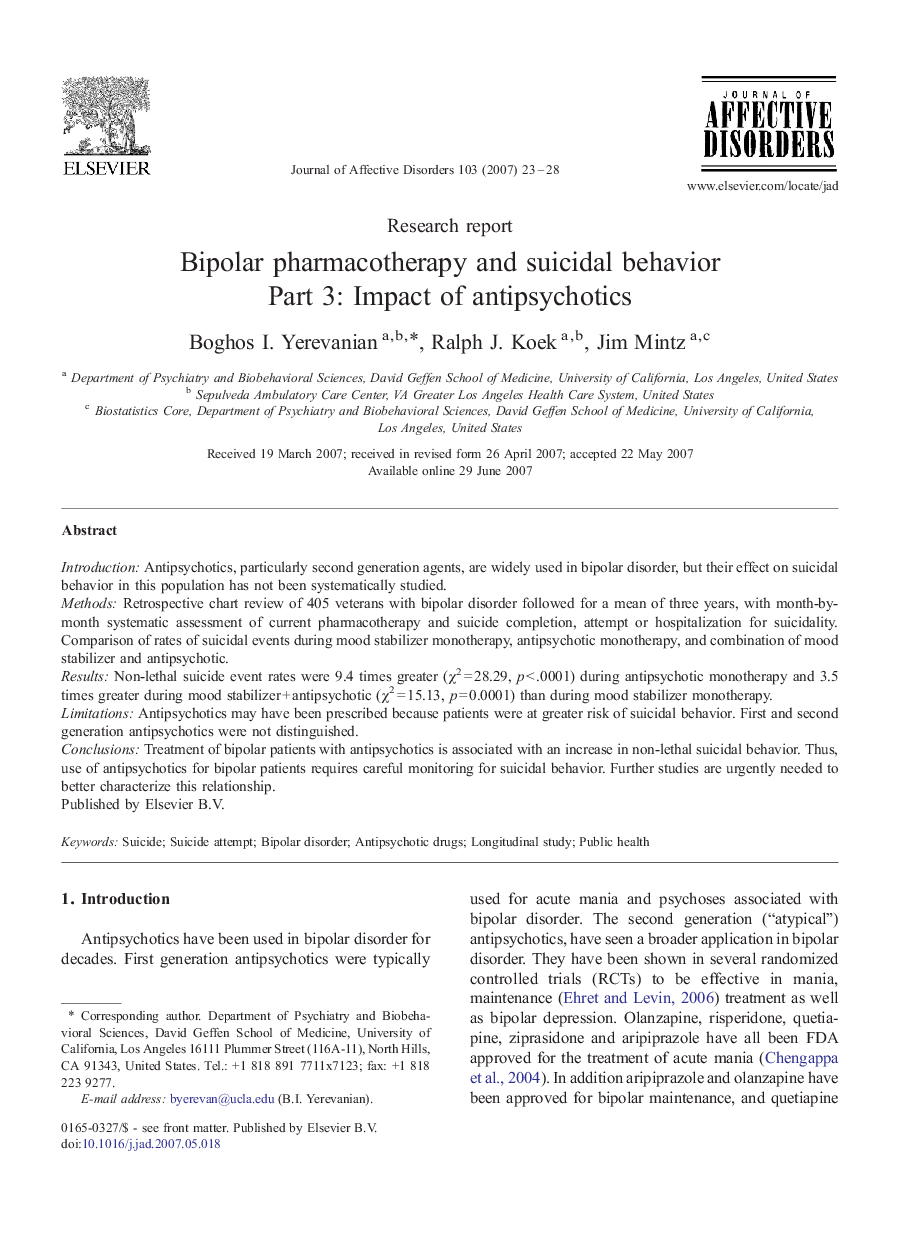| Article ID | Journal | Published Year | Pages | File Type |
|---|---|---|---|---|
| 4187444 | Journal of Affective Disorders | 2007 | 6 Pages |
IntroductionAntipsychotics, particularly second generation agents, are widely used in bipolar disorder, but their effect on suicidal behavior in this population has not been systematically studied.MethodsRetrospective chart review of 405 veterans with bipolar disorder followed for a mean of three years, with month-by-month systematic assessment of current pharmacotherapy and suicide completion, attempt or hospitalization for suicidality. Comparison of rates of suicidal events during mood stabilizer monotherapy, antipsychotic monotherapy, and combination of mood stabilizer and antipsychotic.ResultsNon-lethal suicide event rates were 9.4 times greater (χ2 = 28.29, p < .0001) during antipsychotic monotherapy and 3.5 times greater during mood stabilizer + antipsychotic (χ2 = 15.13, p = 0.0001) than during mood stabilizer monotherapy.LimitationsAntipsychotics may have been prescribed because patients were at greater risk of suicidal behavior. First and second generation antipsychotics were not distinguished.ConclusionsTreatment of bipolar patients with antipsychotics is associated with an increase in non-lethal suicidal behavior. Thus, use of antipsychotics for bipolar patients requires careful monitoring for suicidal behavior. Further studies are urgently needed to better characterize this relationship.
